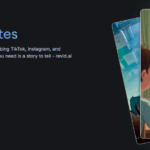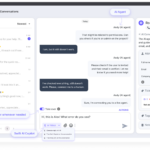Do you associate written assignments with time spent in vain? Then, you should definitely learn how to make the process of assignment writing entertaining and effective. Don’t think that the main aim of teachers who assign a lot of tasks is to prevent you from enjoying the best years of your life. When you start treating each assignment as a great opportunity to gain new knowledge and useful skills that will be of use to you in the future, the process of composing essays will turn into a fascinating adventure!
Has the thought I can pay someone to do my assignments here already crossed your mind? You can entrust professionals to write your task if you lack time. However, you should try to do your assignment on your own before asking someone to compose an essay instead of you. If writing is not your strong point, you will find simple but effective tips here on how to make the process of assignment writing both effective and enjoyable.
Make Sure You Have a Clear Understanding of the Topic
It is not a secret that the key to success is setting the right goal. Almost all students think a major aim is to get a high score and impress the teacher. Grades matter, but, you should concentrate on the main purpose of assignment writing. Think about why the teacher has asked you to compose this assignment on a certain topic, why he/she wanted you to research this very theme, and what approach to writing you are expected to use.
While studying at a college/university students are assigned a large number of tasks. This is done with the aim to teach students to express their thoughts and ideas the right way. Now you may wonder how an ability to write a research outline can help you in the future. You will be surprised, but it will help you to be more organized and think in a logical manner. Always try to understand how you can benefit from the task. Set clear and concise goals. By knowing the purpose of the assignment, you will identify the steps you need to take to achieve this goal.
Choose an Interesting Topic
The selection of a topic is crucial for success. There are certain criteria for choosing a good theme. First of all, it should be attractive to your target audience. The Internet is full of a great number of ideas for students. Do you lack creative and original thinking? Not a problem! Take a sheet of paper and make a list of 10 interesting topics that don’t sound banal.
Always give preference to narrow topics because you will be able to cover all the information. Choose the sphere of knowledge you are interested in and think of an eye-catching theme for you to research. Contraversial topics provide you with more chances to draw the reader’s attention. Take this into account when formulating the title of your research.
Devote Enough Time for Writing a Good Introduction
You should craft a brilliant introduction if you want your reader to feel inspired to continue reading. Most students think an introduction is just a part where you need to tell what a paper is about. It is a misconception. You need to reveal the main idea of your paper in your thesis statement.
Give some shocking facts and information that you discovered during careful research, and let him/her wonder what is going to be next. Forget about sentences like “My work is about extinction of white dolphins.” It is better to start like this “Have you ever seen Baiji White Dolphin? Not surprising! Since 2002, no one has seen it.”
Don’t be afraid of using some funny stories, anecdotes, and quotes in the introduction. Make your reader smile, laugh, or worry. The worst feeling is indifference. That’s why you must choose a topic that will not leave your target audience indifferent.
Don’t Forget about the Paper Format
Your content may be really powerful, but you won’t get an A for the work if it is poorly structured. Depending on the type of academic assignment, the structure may differ; however, there are general rules for writing academic papers which never change. Stick to the following structure when composing any college/university assignment, regardless of the subject.
- Introduction: Craft a brief paragraph about your main idea. Include the thesis statement at the end of the introduction. This is where you highlight the value of your work.
- The Main Body: If you are composing a short paper, you should have 3 or 4 paragraphs. When completing long papers, your main body is going to be several pages long. This is the part where you provide arguments, facts, and useful information.
- You should cover all major points for your reader, so he doesn’t have any questions after getting acquainted with your research. Try to include illustrative examples. Don’t make easy things complex. Remember, you need to explain complex topics so that even a child can understand what you mean.
- Conclusion: Every paper should end with the logically finished thought. The final part is what your reader will remember the most. Summarize the main ideas discussed.
- References: Add a list of information sources. Check the formatting rules for writing a bibliography for your academic assignment. Some teachers may ask you to add short annotations in order to know why you have chosen the mentioned information sources and how helpful they were.
Check Whether or Not You Did a Good Job
The final thing you should do is to assure that the work is perfect. There are many helpful tools you can use in order to make sure you did your best. Use a plagiarism checker to be sure your paper is 100% original. Check whether or not you have met the formatting requirements when including quotes and citation. Use grammar checkers to make sure there are no spelling mistakes. Read your paper aloud to somebody to get feedback on the quality of your work. If you follow the above-mentioned pieces of advice, your success is guaranteed!




































